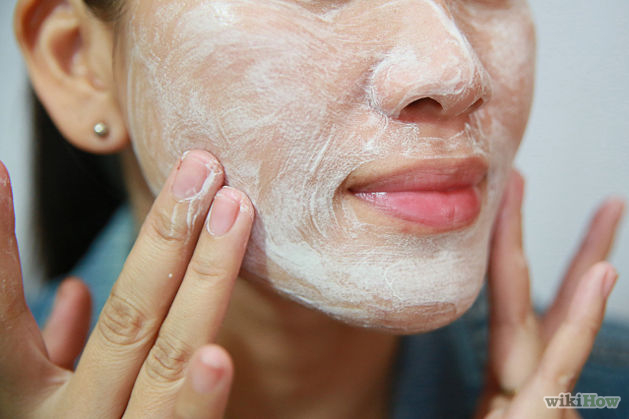How Does Your Skin Type Affect Acne Breakouts?
On Mar 27, 2014
Who can forget the the skin care trials and tribulations of your teenage years. To many of you, acne seemed to reign supreme during this time. Luckily, your skin normally settles down during the late teens and early twenties. Nonetheless, some of us still suffer from acne as adults. Your skin is as unique as you are. People with different skin types face different challenges in dealing with acne breakouts. This article will go over the basics of what causes acne and then helps you decide how to take control of your acne specifically for your skin type.
What Causes Acne?
Acne results from a combination of clogged pores, bacteria, and inflammation. Sebaceous glands, which produce your body's sebum (or oil), are found everywhere on your skin with the exception of the palms of your hands and soles of your feet. If your body produces the right amount of sebum, then your skin is protected. However, if the balance is off, then your skin is either dry when too little sebum is produced or acne-prone when there is an overproduction of sebum.
Androgens, such as testosterone stimulate sebum production and can worsen acne. Its no coincidence that acne is worse during puberty when testosterone levels are quickly increasing. Another culprit in acne is the bacteria with the acne namesake: Propionbacterium acnes. P acne typically colonizes hair follicles and results in an increase of inflammation. If one of your pores gets clogged, the P acne bacteria are not able to be shed onto the surface. Inflammation is the final culprit of the acne trifecta: inflammatory mediators lead to those red bumps (called comedomes) and white heads that one sees in acne sufferers.
Oily Skin Type
Oily skin is normally the most common skin type for acne sufferers. The more oil that your skin produces, the more likely it is that your pores will get blocked, causing the buildup of acne-causing bacteria. If your pores tend to be on the larger side, the excess oil can actually drag the dry and dead skin cells from the surface of the skin down into your pores, causing them to clog and turn to inflamed acne. To combat oily skin, we recommend using Anthony Logistics for Men Deep Pore Cleansing Clay for the guys.
Dry Skin Type
Dry skin is not normally thought of as acne prone skin. However, people who have this skin type must learn to cope with acne in a special way. Dry skin tends to overproduce skin cells that can clog your pores. It is common for dry skin types to have sensitive skin and therefore these folks have to use skin care that involves both gentle exfoliation and skin calming moisturizers to help control acne.

Combination Skin Type
If you have combination skin, your acne tends to concentrate around your forehead, nose and chin, also known as the T-zone. Not only are these areas more oily, they make acne treatment more difficult. This is because treating acne breakouts in the T-zone can dry out the rest of the face. Effective methods for treating acne for people with combination skin include the use of a good antioxidant-rich skin cleanser, an exfoliant to get rid of dead skin cells, and an oil-free, all-day moisturizer. We recommend using Cetaphil for this skin type. For more information of the different skin types, read our past article, “What is YOUR skin type?” For more acne fighting products, check out the Acne Management section of the our Skin Care Store!



Comments
Leave a Comment